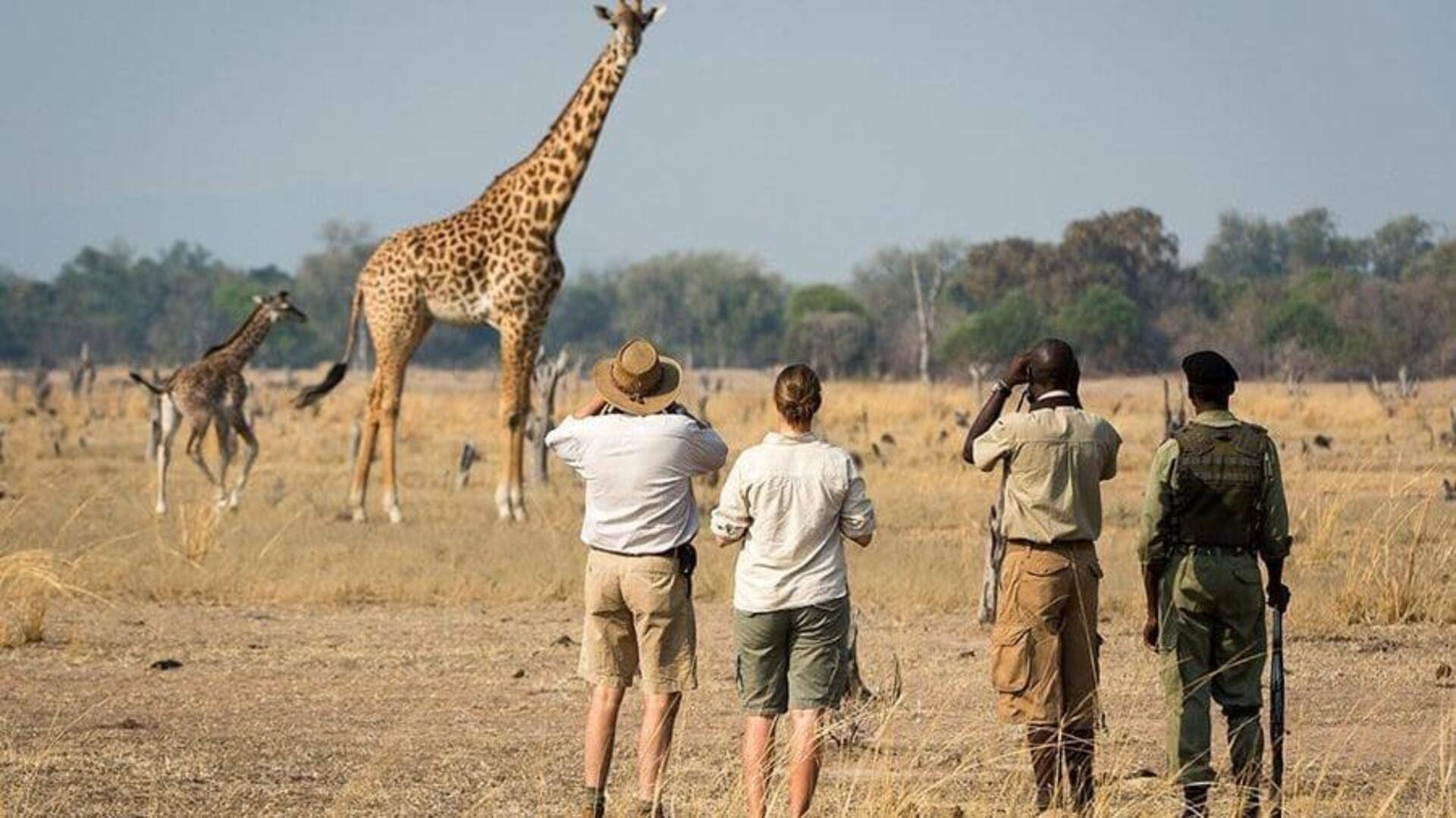
Why Zambian walking safaris are so special?
What's the story
Zambia is the ultimate destination for walking safaris, offering an unparalleled experience to connect with nature. Unlike traditional safaris, where you sit in a vehicle, walking safaris allow you to explore the wilderness on foot. This way, you can observe wildlife up close and learn about the ecosystem from expert guides. The country's diverse landscapes and rich biodiversity make it an ideal place for adventurers looking for a unique experience.
#1
Explore diverse landscapes
Zambia's varied landscapes are another reason why it is the best for walking safaris. From the lush Luangwa Valley to the arid Kafue National Park, each region has its own distinct flora and fauna. The changing terrains give you an opportunity to explore different ecosystems in a single trip. Walking through these varied landscapes gives you a deeper understanding of how they all contribute to the region's biodiversity.
#2
Engage with expert guides
One of the highlights of any walking safari in Zambia is the opportunity to engage with expert guides. These professionals are not just knowledgeable about wildlife, but also about the plants and the ecosystem as a whole. They share insights on animal behavior, track identification, and conservation efforts. Their expertise enhances your experience by providing context to what you see during your walks.
#3
Witness unique wildlife encounters
Zambia is home to some of Africa's most iconic wildlife species, including elephants, leopards, and hippos. Walking safaris provide an intimate setting for observing these animals in their natural habitat without disturbing them. The close proximity allows you to witness behaviors that might go unnoticed from a vehicle. This immersive experience fosters a greater appreciation for wildlife conservation efforts.
#4
Experience cultural interactions
Walking safaris in Zambia also offer opportunities for cultural interactions with local communities. Many tours include visits to nearby villages where travelers can learn about traditional customs and ways of life that have existed alongside nature for generations. These interactions provide valuable insights into how local people coexist with wildlife while preserving their cultural heritage.